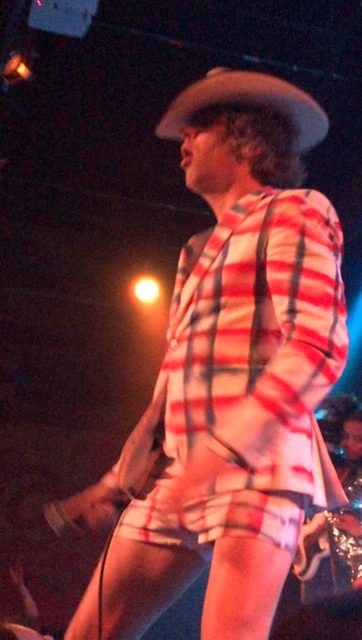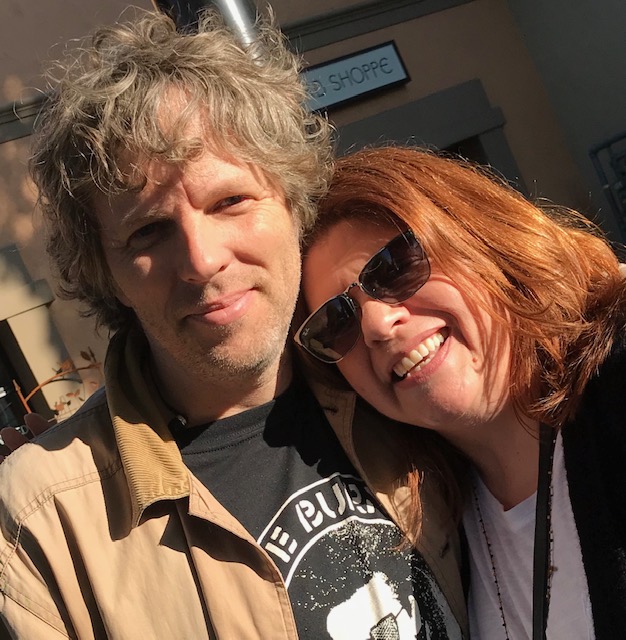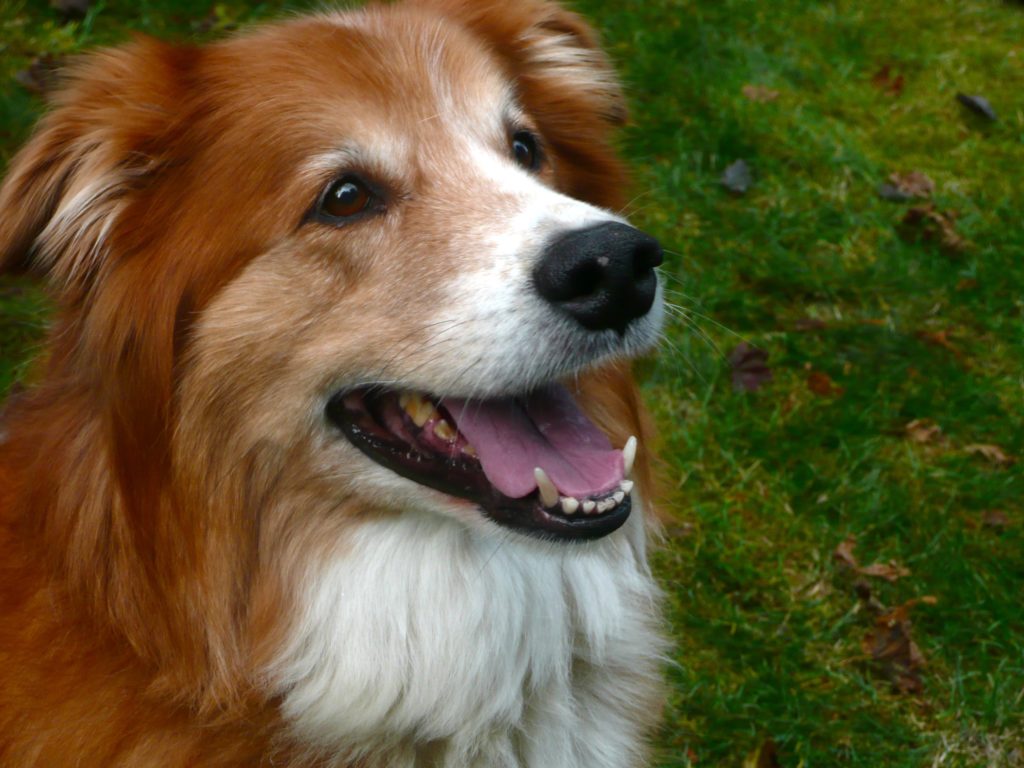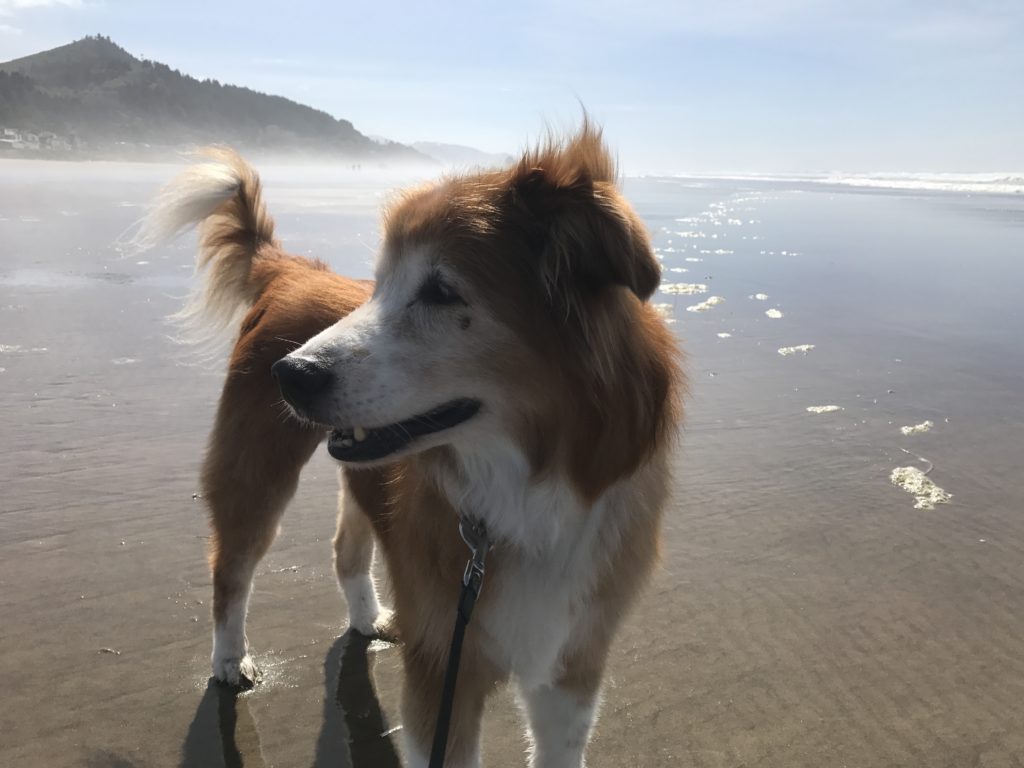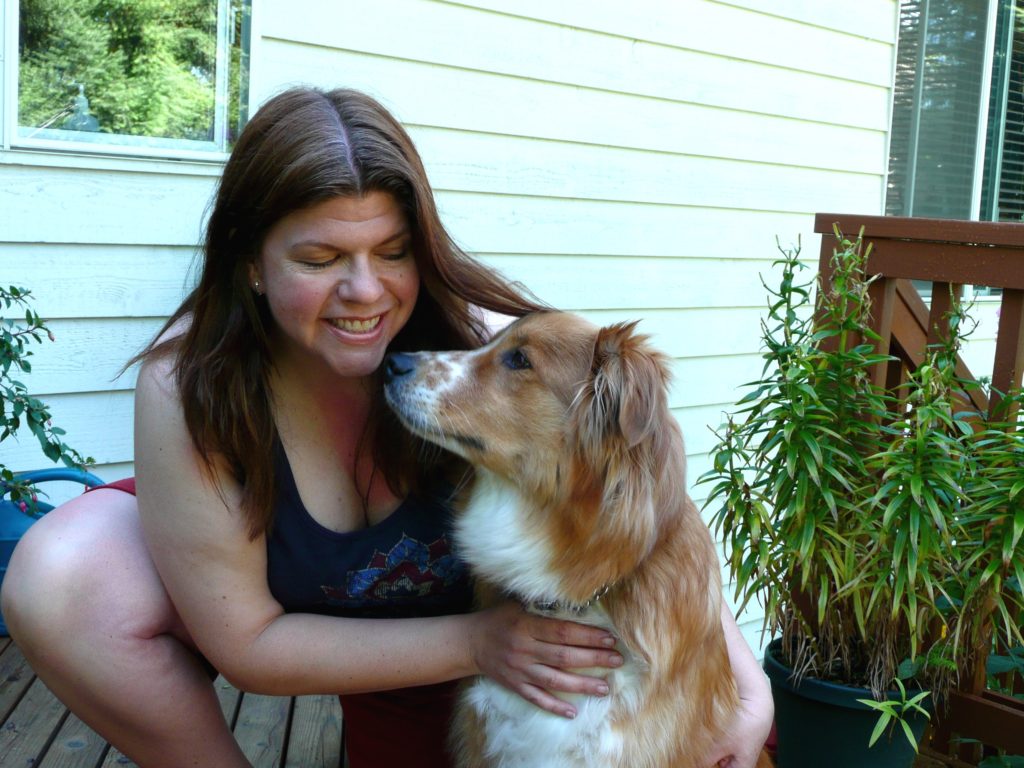First, a word about this blog: two years ago, with the intention of honing my writing chops, I decided to create and publish this Three Things blog each Sunday with a commitment to see it through one full year. And it worked quite beautifully, I’m proud to say. My writing got better, but not necessarily easier. It was hard, as good things often are, and I began to feel the familiar strain of burnout. Writing this blog had become my second job, a job that took up most of my weekends and didn’t pay me one cent. The postings dwindled and I stopped short at Issue Fifty-One, one week shy of my one year goal.
Like a college student who drops out with one quarter to go to finish their degree, I gave up. Hey, look at me and my cheeky self-sabotage!
So, after some soul-searching and a week of incredible experiences that made me go “hmmm”, along with a few deep conversations with friends who shine a light on my shadows, I’m firing up my blog and hammering out at least one more post.
In other words, I’m getting out of my own way.
ONE: PROM QUEEN
High school was not my jam.
High school was a place I needed to pass through in order to get on with my life and by the time I was 16, I was ready to live. Cheerleaders and homecoming, football games and prom held little interest for me. My classes were uninspiring and my grades were okay and I loved creative writing class, but I found my true refuge and My People in dark clubs and concert venues amidst the clatter and din of pulsating bass lines that shook my heart. My best friend and I started working with local bands, pulling cable and lugging equipment cases, emerging from empty high school gyms and clubs the morning after, covered in a salty sheen of sweat and the smell of duct tape on our hands. I dreamed of becoming a recording engineer or music producer.
Music saved me.
After high school, I studied television production and broadcasting–the brightly colored knobs, buttons and lights on the production switcher were intoxicating to me and reminded me of the sound and light boards I was familiar with in the music business. My days were filled with TV school, my nights were spent catching local bands around Seattle and I filled the rest of my time sewing most of my “club clothes”–velvet mini skirts, leopard-print shirt dresses, and stretchy, form-fitting dresses I paired with vintage coats and shoes scavenged from thrift stores. I was a hair model at a trendy downtown salon, sporting all manner of spikes. And I had given full reign to my anorexia by this time, so that when I stepped into the dark nightclub in my tiny, velvet mini skirt, I felt like the belle of the ball–the bands knew me and I knew them. I felt seen and important. Loved, even. Validation that didn’t exist in the hallways and classrooms at my high school.
The attention fed me in a way food never could.
“Boy crazy” was what my mom liked to call me as she rolled her eyes dismissively. My sister teased that I couldn’t possibly have a deep thought in my head. All I knew was how much I loved the way my heart quickened and my belly fluttered and how time seemed to stop when I was in the throes of the thrum of loud music, bright lights and crazy, sexy band boys. And kissing. Kissing was my jam.
I wound up marrying a boy from a band and going on to work in film and video post-production, still turning knobs and dials, studying scopes and monitors, even working on a few music videos during Seattle’s grungiest heydays. I had kids, raised a family, started teaching yoga. I stopped going to clubs. And in the midst of it all, I lost myself.
I missed the clatter and din. The way I could be pressed up against sweaty bodies of strangers I had no expectation of, nor them of me, and experience the music together, but separately. A friend recently remarked how it was the perfect outlet for my introverted self–to be together with others and the collective energy, but I could remain as unseen as I chose to be.
Reconnecting with a friend from my music days reconnected me to music. We became each other’s partner-in-crime and dove back into the gritty clubs and a brand-new music scene. And it was in that new-found scene that I discovered the band Chk Chk Chk. (Or, !!!) I even wrote about them here, in my very first issue of my Three Things blog. In that blog post, I mentioned the lead singer, Nic Offer, and wrote about fantasizing about having his baby. He drips with an overt and oozey sexuality that I (and many others) find delightful and I quickly came to refer to him as Baby Daddy. If you were my friend, you knew exactly who Baby Daddy was.
No one was surprised that I snapped up tickets to both their Seattle and Portland shows when their latest tour was announced. I booked an Airbnb within walking distance of the venue in Portland, convinced another friend to come along for the fun and counted down the days. I listened to their new release, Wallop, nonstop and made my friends promise to not let me leave the shows without meeting Baby Daddy.
How quickly we lose passion as we get older, if we’re not careful.
The day of their Portland show was sunny and brisk, a clear, bluebird sky adding a lovely contrast to the red and yellow leaves falling from the trees. After a three and a half hour drive down from Seattle, I told my friend I would likely nap once we got to our Airbnb, but stretching our legs to take a walk for a cocktail and an early dinner won out. We had just turned down the street the venue was on when I noticed someone leaning up against a lamp post. My eyes were drawn to the red pants and then up to the messy mop of curls but it wasn’t until we had passed that I recognized the face. Baby Daddy was leaning up against the light post, ear buds in, listening to something on his phone. Without a word to my friend, I turned and approached him, getting his attention. He looked surprised and then relieved when I said “I am such a big fan.” He laughed and commented that he was worried I was going to ask him for directions. The three of us chatted casually, me trying to play it cool with my heart beating out of my chest, that familiar and intoxicating flutter deep in my belly, my extroverted friend thankfully not referring to him as “Baby Daddy” and me finally asking if I could snap a photo with him. “Of course,” he said with a smile.
Pictures or it didn’t happen.
We squeezed ourselves up front with the hardcore Chk Chk Chk fans as the synth line of the opening track of their latest release began to pulse. I spilled my drink. Baby Daddy bounded out in his shorts and sneakers and for the next 90 minutes, time stopped. It is a wild, in-your-face, nonstop ride of funky beats at a Chk Chk Chk show and Baby Daddy works the crowd like no other performer I’ve seen. He flashed a smile of recognition my way and my knees weakened. I felt seen and it was electric. Later on, he jumped into the crowd and we danced. Baby Daddy and I danced together! The show ended long before I was ready.
Giddy and still slightly drunk, my friend and I stumbled back to our Airbnb. We both agreed it couldn’t have been a more perfect day.
The following day was all about recovery. Yoga, water, ice, walking to loosen up cranky knees. I had another show tomorrow. I tweeted out to the band a request to play my favorite song from their new release, a song they hadn’t played in Portland. The venue retweeted it. I thought nothing more of it.
The Crocodile seemed far more crowded than the club in Portland and I worried about getting close enough. Squeezing, shifting, shuffling my way towards the front, I finally found a spot to claim. Next to me, a big guy sporting a large, white cowboy hat. I turned to my friend and made a snarky remark about “the yee-haw who thinks it’s a good idea to wear a cowboy hat to a show.”
The familiar synth line got the excitement building and I caught a glimpse of Baby Daddy behind the curtain, getting ready to explode onto the stage. Maybe it was because it was Wednesday instead of Monday, maybe it was because they had played a set at KEXP earlier in the day, but the band’s energy was off the charts that night at the Crocodile. The crowd–even the guy in the cowboy hat–went crazy and we all went hard and crazy together, especially when Baby Daddy gyrated his signature dance moves right in front of our faces. I looked up, caught his eye and another smile. Seen. Electric. Flutter and breath. Three songs in and Baby Daddy grabs the cowboy hat and puts it on and does a little improvised choreo with the hat before handing it back to the guy standing next to me who suddenly now has a bit more cred in my eyes. And I felt bad about the snarky comment.
It was a bit later in their set when they stopped to introduce their next song. “This next song is for, yes–I think this next song is for you” as Baby Daddy spun around and pointed directly at me. My heart stopped and I pointed to my chest and mouthed the question me? as I looked behind to check for someone else. Just then, a sloppy-drunk girl bounded up beside me shouting “Me! Me! Me! It’s my birthday! It’s for me!” and I thought, oh no, not today, sweetheart. Today, it was for me. Unmistakably me. The song began and Baby Daddy came right over and we sang the first line or two to each other. He ran off, jumped off the stage and into the crowd and everyone around me cheered and gave me high-fives. The guy with the cowboy hat handed the hat to me and shouted, “you need to wear this–this is YOUR song!” and I gamely put the hat on and did a little hat dance in the spirit of it all. I lost sight of Baby Daddy in the crowd but suddenly heard his voice in my right ear, “It was you, right?” before seeing a flash of pink and white plaid shorts climb back on stage. My friend, who was just behind me, got my attention and said that Baby Daddy had tried to talk to me.
It was me, alright.
The show went on, time stood still, sweat soaking through all the layers of my clothing. Last song, encore, too soon. I wasn’t ready. Baby Daddy ran across the length of the stage, blowing kisses to the adoring, cheering crowd. He came back to the side I was on, reached out and grabbed both of my hands. Our eyes connected and I smiled broadly, feet still floating on cloud nine. A moment in time.
Seen. Electric. Powerful. Human.
I remember locking eyes with Prince when I saw him at the Showbox on the last tour of his too-short life. A chill ran down my spine then as it did now.
The house lights came up and I laughed with some of the other Chk Chk Chk fans around me, sharing in the electricity of the evening. My friend found me and wrapped me in a tight hug for a long time. “Tonight, I was the Prom Queen, wasn’t I?” I whispered in his ear. “Yes! You were the Prom Queen!” he assured me.
As we filed out of the Crocodile, I overheard some rumblings of an after party. I knew it was the band’s last show on the west coast before they headed back east. I wanted to give Nic a hug and just tell him thank you, but I also didn’t want to chance ruining the magic of the evening by wishing for too much. And I didn’t want to be creepy. I texted my daughter the news and she texted back that I, indeed, had just had the best “next-level-concert-experience ever.”
It’s nice when I can still impress the kids.
A prom queen in a cowboy hat. A random tweet. A chance meeting by a light pole on a Portland street on a sunny fall day. I don’t know if Baby Daddy knew what he was doing when he dedicated that song to me–if he knew he was placing that sparkly tiara on my head and draping the sash around my shoulders. But I do know that I’ll be mostly referring to him as Nic now. Not because we’re chummy besties and certainly not because I’d ever be opposed to the idea of having his baby (because I’ll always entertain that fantasy) but because somehow along the way he became beautifully human. As his and my eyes connected, he became Nic.
Seen. Electric. Powerful. A motherfucking Prom Queen.
Thanks, Nic.
TWO: PASSION
How quickly we lose passion as we get older, if we’re not careful.
I clearly remember the Pampered Chef party I attended when my daughter was in preschool, along with a gaggle of housewives and neighborhood moms. We sat in a circle, catalogs on our laps, and took our turn answering the ice-breaker question, “What is your passion?” My mind spun, trying to think of the best one, my biggest passion, the one thing that gave me all the goosebumps above everything else. I listened as one by one, the women would shrug nonchalantly and say “my family?” It was my turn and I answered “music” and went on to talk about the chills and thrills I got listening to music and how everything else seemed to disappear when seeing a live show. How I never felt more alive than when experiencing live music. My answer was met with blank stares and judgement because obviously, I was an abysmal wife and mother and I had given the wrong fucking suburban mom answer. (But I left with an awesome spatula.)
Those were not My People.
In my work as a Wellness Coach, I meet with dozens of people each year who come to my office for guidance in healthy living. When I ask them, “what do you love to do?” they look at me like it’s a trick question. Like they’re supposed to say running or working out or eating kale. I tell them, no, really. What lights you up? More often than not, they struggle to answer.
When do we decide we’re too old? Or do we let someone else decide that for us?
When I began going back to shows at clubs, I got all the questions. Don’t you feel weird? Out of place? Too old? Nope, I didn’t. Not at all. And I don’t let anyone convince me I should.
What is it for you? Art? Politics? Hiking? Find museums and causes that you believe in and hiking groups to help you navigate the trails. Intentionally surround yourself with passionate people who expand your universe, rather than shrink it with talk of shoulds and should nots. Passionate people have a light in their eyes and tend not to worry what other folks think.
“She feels in italics and thinks in capitals” reads the tattoo on my right forearm. Fuck yes.
I encourage the members I meet with to just keep moving. But I want to tell them it’s so much more than that. That finding a passion, and then living passionately, with curiosity and an open mind for learning is just as vital to staying young as exercise is. This much I know is true.
Find something that makes time stop for you. Find something that makes your heart pound and your knees go weak and maybe you even stumble and take a slow-motion (slightly drunk) tumble to the sidewalk as you reach for the kitty who slunk out of the bushes to surprise you on your walk home.
Just make sure you have a friend nearby who can help you up and laugh about it in the morning.
THREE: WRITING
The moment we begin to create our art with someone else in mind–such as an audience–our art dies.
On our drive home, my friend on the Portland adventure asked me about my writing. I admitted the thought of me writing repulsed me. Like, physically made me want to barf. I’m not sure exactly when it happened, but I stopped writing when I started wondering what other people wanted to read. I began to worry endlessly about getting drafts and essays edited and good enough for submission. What were they looking for? Was I even good enough? I couldn’t possibly be good enough.
She kept asking questions (because she’s like that) and I told her that my writing was as essential to my well-being as exercise and eating vegetables. That I didn’t feel well if I wasn’t writing. What if, she mused, you started writing just for yourself again? Without the expectation of anyone ever reading your words? What if you wrote what you–just you–wanted and needed to read?
Her question wasn’t earth-shattering, or one I hadn’t heard before. But it landed in me in a way that, this time, made me stop. What if? What if I wrote just for myself? I know how easy it is to get caught up in the likes and the shares and the retweets and the comments. How social media muddies the waters of creativity and perpetuates unhelpful comparisons. I needed to unplug from that cycle. I am making a promise to myself to keep writing, but with the intention of only writing what I want to read. For my eyes only, at least for now. Maybe it results in a lovely personal journal or maybe an awesome book for all to read someday, somewhere. The important thing is that it doesn’t fucking matter.
I write because it is who I am.
So, here it is, Issue Fifty-Two of Three Things. One full year of weekly blogs, done. The circle complete, ironically beginning with Chk Chk Chk and ending with Chk Chk Chk. (Hey, thanks Nic.)
I couldn’t have planned it any better.
